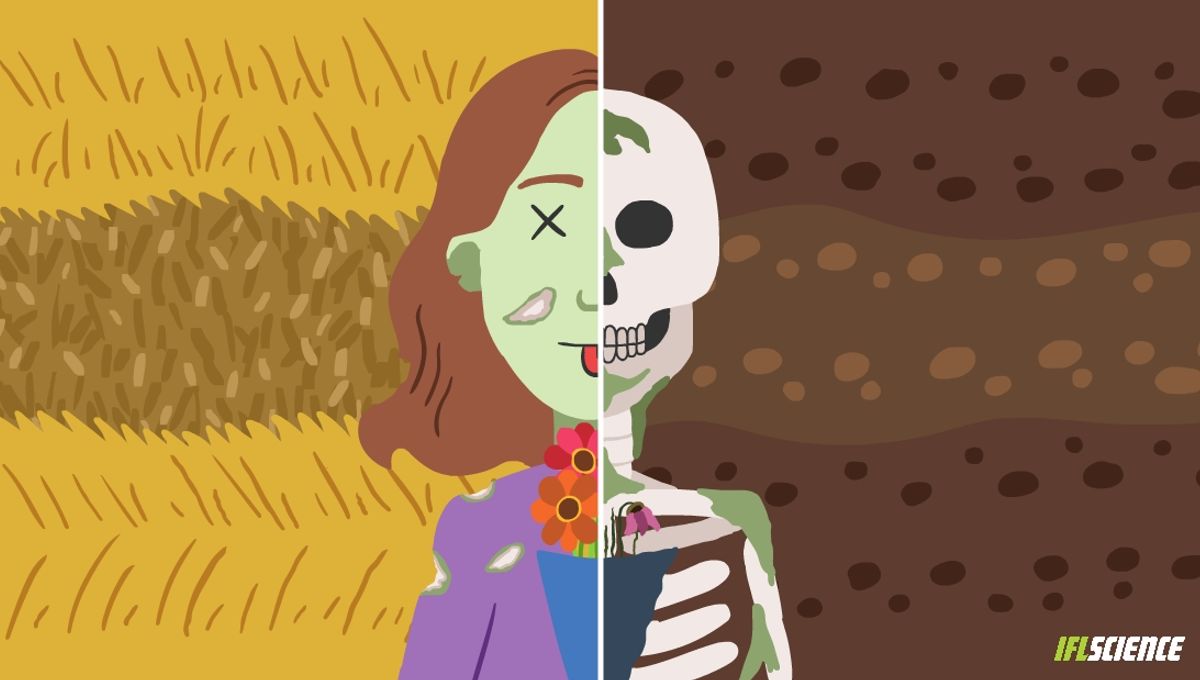
Human composting has joined burial and cremation as one of the ways in which we can now dispose of our dead, taking a corpse and turning it into the black gold known as compost. It doesn’t require fuel, returns us to the nutrient cycle, and produces comparatively little in the way of emissions. So, is being reduced to sludge the greenest way to go?
Also known as natural organic reduction (NOR), human composting requires a specific recipe to get the process going, made up of alfalfa – for nitrogen – as well as carbon-rich things like leaves and straw, all mixed with water. The corpse is placed in a vessel with the blend and left for a few weeks, in which time the temperature and humidity of the vessel are regulated as microbial activity breaks down the body.
By the time the temperature starts to drop, the bones and any implants on the body will be surrounded by a dark material, and this is mixed and aerated for a few weeks to complete the process. The bones are then removed and manually broken down before being returned to the compost, providing extra nutrients for the microbes who – yes – can break down bone, adding more minerals to the black gold.
Compost is known as “black gold” because of the transformative effect it can have on soil quality. Typically, your average gardener is using stuff made up of decomposed kitchen waste – but in truth, most organic materials can be made into compost. So, if you love the planet, why not give what you’ve got left to the ground?
Human burial has been estimated to account for 1 million acres (404,685 hectares) of land in America, land that has been stripped of its natural plant and wildlife composition. An additional 4 million acres (1.6 million hectares) of forest are lost each year to provide enough wood for coffins and caskets (which, by the way, aren’t the same thing).
Embalming is common among people who are buried, leaching around 800,000 gallons of embalming fluid a year into the ground as a contaminant. It’s easy to see why, then, an eco-friendly alternative that enriches the soil, rather than destroying it, is growing in popularity.
The process is considered safe and can destroy most pathogens, though certain causes of death may not be suitable for natural organic reduction. This is because some pathogens, like the prions that cause Creutzfeldt-Jakob disease, can still be infectious even after the organic processing.
In the United States, human composting is legal in Washington, Colorado, Oregon, Vermont, California, New York, and Nevada, but companies like Recompose and Return Home are working to expand the reach both within the country, and, eventually, across the world.
So, would you be open to becoming compost?
Source Link: Turning A Human Corpse Into Black Gold: The Greenest Way To Go?